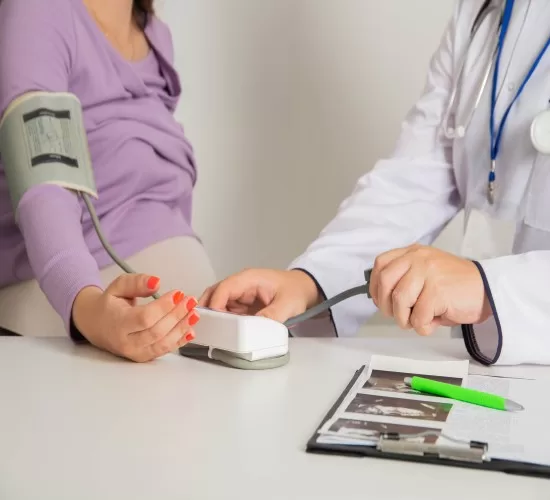A mother who fought for her baby’s survival with preeclampsia in pregnancy

Preeclampsia is one of the most common pregnancy complications, seen in 5 to 7 percent of all pregnancies worldwide and claiming the lives of over 70,000 mothers and 500,000 unborn babies each year (1). Despite its high prevalence, awareness about preeclampsia, available risk assessment tests, treatment options, and potential complications from untreated preeclampsia, remain poor. A study published in Frontiers in Medicine revealed that more than half of all mothers who were diagnosed with preeclampsia only learned about the condition at the time of diagnosis (2).
Dr. Sai Deshmukh had an edge over other women thanks to her medical background and career at Roche Diagnostics, yet she too found herself unprepared for what lay ahead. She was under the impression that preeclampsia was an uncommon condition that she didn’t need to worry about as she was otherwise healthy. Her first positive pregnancy test came with foreboding, as it was the same day that she also tested positive for COVID-19. She experienced a flurry of emotions, from exuberance to panic and uncertainty.

“Gradually, my blood pressure soared and my feet swelled overnight, I knew instinctively that something was wrong,” recalls Sai. She ignored the reassurances of friends and family and instead consulted her doctor. This made all the difference. Without timely treatment, preeclampsia can cause damage to the organs, fetal growth restriction, and other complications, also increasing the long-term risks for cardiovascular disease, stroke, and vascular dementia (1). This is unfortunate as predictive diagnostics can even detect preeclampsia to identify high-risk pregnancies and enable early intervention (3). In some cases, preventive therapies can reduce the incidence of preeclampsia by as much as 62 percent (4).
While Sai’s diagnosis came too late for preventive care, she reminds us that without treatment her preeclampsia could have been fatal. Sai vividly recounts the routine of hospital life, where each day blurred into the next amidst tests and observations. Regular tests were conducted, blood pressure was meticulously monitored, and rapid weight gain served as a stark reminder of the severity of her condition. Yet, amidst the turmoil, the lively kicks of her baby served as a beacon of hope, reminding her of their shared fight.
“Despite being put on pregnancy-safe hypertensive treatments, my blood pressure would not budge and my feet just kept swelling,” Sai shares. Although her medication was increased and vitals were closely monitored, an emergency operation was necessary transforming the joyful anticipation into a fight for survival. “At 28 weeks, a sudden complication arose as my kidneys ceased producing urine,” she recalls. The clinician suggested preterm delivery as the only intervention that could help resolve the condition and prevent further complications (5). Her baby was born premature at 28 weeks and severely underweight.
Enduring the uncertainty of her baby’s fragile existence in the NICU tested Sai’s resilience and that of her family. Yet, amidst tears and uncertainty, her son’s fighting spirit gave her hope, spurring her through months of hospital visits. “As I look back on that challenging journey,” reflects Sai, “I am grateful for the strength it instilled in me and the bonds it forged within my family.” She points out, “I’ve come to realise that knowledge truly is power—it’s half the battle won. If only I had known back then what I know now, perhaps it would have spared us the entire ordeal.”
This realisation underscores the urgent need for all mothers-to-be to educate themselves about relevant screenings and diagnostic tests. We applaud Sai for being an ambassador for #BeYourOwnSHERO campaign and hope it inspires all women to prioritise their health.
References:
- https://www.ahajournals.org/doi/full/10.1161/CIRCRESAHA.118.313276
- https://www.ncbi.nlm.nih.gov/pmc/articles/PMC10662303/
- https://journals.plos.org/plosone/article?id=10.1371/journal.pone.0244369
- https://www.ncbi.nlm.nih.gov/pmc/articles/PMC7769282/
- https://www.uptodate.com/contents/preeclampsia-antepartum-management-and-timing-of-delivery